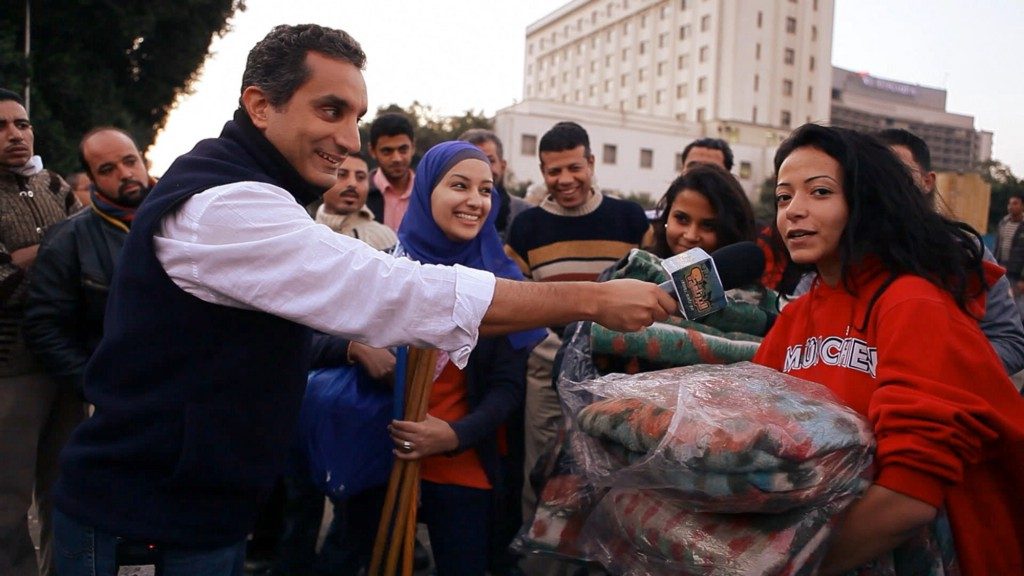A senior producer at “The Daily Show,” Sara Taksler has pitched stories and jokes, and researched footage for over a decade. Taksler directed and produced the feature documentary, “TWISTED: A Balloonamentary,” a hilarious and heartwarming look at the world’s premier balloon-twisting convention, with film partner Naomi Greenfield. Taksler’s first film, “Stop the Ignorance: The Beauty That Is New Jersey,” was a tribute to her home state. (Press materials)
“Tickling Giants” will premiere at the 2016 Tribeca Film Festival on April 14.
W&H: Describe the film for us in your own words.
ST: “Tickling Giants” is a Cinderella story gone awry. Virtually overnight, Bassem Youssef goes from a doctor to one of the most popular comedians in the world. But, as his country, Egypt, struggles with the parameters of free speech, telling jokes becomes dangerous for Bassem and his staff.
W&H: What drew you to this story?
ST: I’m a senior producer at “The Daily Show.” In 2012, Bassem and a few producers came to observe us before their show started in front of a live audience. I like the place where entertainment and social justice intersect. While I didn’t know that Bassem’s show would turn out to be such a big deal, I admired that this group of people was doing the same thing I do, but with such higher stakes.
And two of the producers who came with Bassem were women. I was really curious what it would be like to be my counterpart in Egypt.
W&H: What do you want people to think about when they are leaving the theater?
ST: I’ve actually thought about this a lot. I really want people to feel inspired. Hopefully, Bassem will empower people to see that that they can find non-violent ways to take on the giants in their own lives, big and small.
W&H: What was the biggest challenge in making the film?
ST: Going to Egypt at a time when the U.S. government discouraged travel was difficult. I was a woman traveling alone and I stood out. On the whole, I had a wonderfully amazing experience. But there were times it felt intimidating.
When there were protesters outside of Bassem’s studio, his team asked me not to go with the rest of my crew, because it might incite people. And, after one of our camera people was beaten up, I filmed all the outdoor shots from a moving car.
W&H: How did you get your film funded? Share some insights into how you got the film made.
ST: I ran an Indiegogo campaign and also got a grant. However, this film was really made with an incredible stroke of luck. A friend of a friend shared my Indiegogo trailer with people and it wound up on the desk of a woman who is married to the CEO of Technicolor. He pressed play, liked what he saw, and called me the next day asking if Technicolor could come on as an executive producer. I won a lottery I didn’t enter.
W&H: What’s the biggest misconception about you and your work?
ST: People think all of my films will feature a giant flying octopus made out of balloons just because of that one time…
W&H: What’s the best and worst advice you’ve received?
ST: The best advice I’ve received is that almost all of the advice you get is going to be good advice, and it’s your job as a director to decide which advice to take.
The worst advice was to stop having dance breaks. Why would I ever stop having dance breaks?
W&H: What advice do you have for other female directors?
ST: Dance breaks.
W&H: Name your favorite woman-directed film and why.
ST: Amy Heckerling’s “Clueless.” It’s funny with a touch of sweetness that I like.







